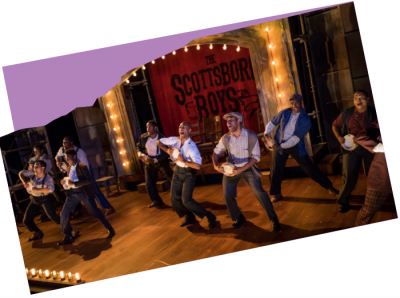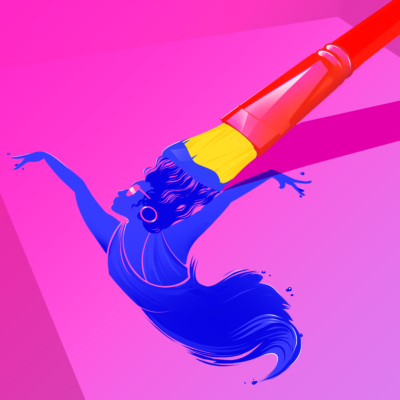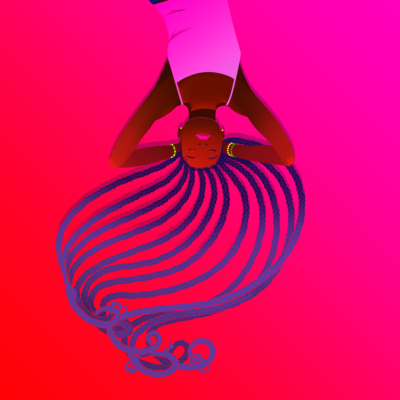Your donation sets the stage for a new season of Boston's most intimate, entertaining and provocative plays and musicals. Our shows make powerful connections with our audiences-- and they are only possible because of you.
Interview with Author Charles Busch
Interview with Author Charles Busch
An Interview with Charles Busch
 In 2000, playwright/actor/director Charles Busch was honored with a star on the Playwrights’ Sidewalk outside the Lucille Lortel Theatre on Christopher Street in New York City, joining an illustrious roster of playwrights whose work has filled the theatres of Off-Broadway. Busch’s impact was first felt there when Vampire Lesbians of Sodom began its 5-year run at the Provincetown Playhouse in 1985. More send-ups of popular movie genres followed, all written by and starring Charles Busch as the leading lady. After also finding success on Broadway, in Hollywood, on TV, and as a fiction writer, Busch returned to his Off-Broadway roots last year with The Divine Sister.
In 2000, playwright/actor/director Charles Busch was honored with a star on the Playwrights’ Sidewalk outside the Lucille Lortel Theatre on Christopher Street in New York City, joining an illustrious roster of playwrights whose work has filled the theatres of Off-Broadway. Busch’s impact was first felt there when Vampire Lesbians of Sodom began its 5-year run at the Provincetown Playhouse in 1985. More send-ups of popular movie genres followed, all written by and starring Charles Busch as the leading lady. After also finding success on Broadway, in Hollywood, on TV, and as a fiction writer, Busch returned to his Off-Broadway roots last year with The Divine Sister.
What set you to writing another movie spoof?
Well, every couple of years I get this great need to put on a play for the simple reason to have fun. At the time, I had just finished writing, of all things, a Lifetime TV movie, and having been tortured by a whole bunch of executives for about six months until they finally decided that the whole movie was “too Charles Busch,” I needed to cleanse my palate doing something just for fun. So I gathered all my favorite colleagues who I enjoy hanging out with and contacted a place called Theatre For the New City, a very funky downtown space where I’ve had a relationship for years. And then I had to write them a play. I got the booking, so I had to write a play.
Why a spoof of nun movies?
I wasn’t raised with any kind of religious background at all, but I grew up just loving any classic Hollywood film that had to do with religion or nuns or miracles. Since I had never met a nun or experienced the strictness of a Catholic school, I could write this play as a valentine to the movies I love. It’s not a blistering satire or indictment against the Catholic Church or organized religion. It’s a celebration of the peculiar ways that Hollywood has handled religious themes. Hollywood never really had the right vocabulary to deal with religious themes, so I find it funny and fascinating to track the portrayal of nuns through the last 50 years of film.
Why did you choose to set The Divine Sister in the mid-sixties?
When I write these film-genre plays, there’s a certain amount of personal fantasy involved, and I thought, wouldn’t it be fun to be the late-career Rosalind Russell in The Trouble with Angels and wear a habit as a costume? Therefore, it had to take place in the sixties. Nuns don’t really even—well, I guess nuns exist today—but they rarely dress in the classic habit.
Did you spend a lot of time watching movies when you were a kid?
It was an addiction. Like many gay kids, I had a rather isolated childhood and lost myself in the world of classic Hollywood films which were so available. I’m the product of a completely movie-permissive childhood. I stayed up until the middle of the night watching The Late Show and The Late, Late Show. I really did all my research for my whole career before junior high school, so now when I take on a certain film genre, I just do a little brush-up.
How did you manage to find your very unique place in the theatre?
I never thought for a second that it wouldn’t work out, which was slightly insane because I was a rather odd type. When I was at Northwestern and began to question whether I really wanted to be an actor in other people’s plays, I would come home for vacation back to New York where I started being exposed to more experimental theatre; in particular, the work of Charles Ludlam. A great light went on when I saw him in a play he wrote called Eunuch of the Forbidden City. It was an outrageous, decadent, downtown kind of piece involving drag and opera and classic Hollywood and theatre references. All the things that fascinated me, he was actually referencing on stage. So I thought, “Yes, maybe that’s who I am, as well. I should create my own theatre.” My imagination held no bounds.
It took awhile to really, really figure out “who am I?” but I always was convinced that I had something great to offer, and that if I pursued it without deviation from my path, continued to grow and learn and get better, it just had to work out. I stayed in Chicago after I graduated and started writing plays and putting them on in bars. Right away I sensed a real connection between me and the audience. I could feel it and it was electric. My twenties were very difficult, and at the same time, very encouraging. I would book myself around the country in these small non-profit theatres.
Did it take a long time to evolve into only playing the female characters in your pieces?
I always had an affinity for playing female roles. When I was living in Chicago, I started a theatre company, very briefly, over the course of one year, built along the lines of Ludlam’s company where I was the author and the leading lady. But it was the wrong group of people who didn’t really want to do that kind of work and resented being my supporting cast. So I became a solo performer for the next seven years. I had to play all the characters, but the female characters were the most vivid, and I played them the best. Occasionally, a very insightful critic would see that my imagination only really got going when I was playing the female characters, and Ludlam, who would give me advice occasionally, once said, “Why don’t you just play the female character?” I just scoffed.
But I booked myself by chance to do a performance in a little club on the Lower East Side. I wanted to do something really different and outrageous, decadent and flamboyant. So I wrote a half hour sketch and cast it with friends of mine. It felt awfully good to play the one female character and having other guys play the roles that didn’t really interest me.
Was that the first time you used all the trappings and were in drag?
During the abortive experience in Chicago, I was in full drag. It’s interesting that my solo career was bookended by two experiences that were so similar and yet completely opposite. In Chicago I was doing the exact same kind of material in a sustained situation where I was the playwright and the star and had somebody else directing, but the others didn’t share a similar sensibility or training so it ended in terrible bitterness. The second troupe was a group of people who loved me and thought I had something to offer. They wanted to play in my yard. And then this wonderful miracle happened to us. Almost from the start, we attracted a cult audience — by the second weekend. Somehow we were in the right place at the right time with the right group of people sharing a dream, so great things happened. We ended up moving Vampire Lesbians of Sodom to Off-Broadway where it became a big success, ran for years, and has given me a career ever since.
–Suzanne Bixby
 Past Productions
Past Productions LAUGHS IN SPANISH
LAUGHS IN SPANISH PRU PAYNE
PRU PAYNE ain't no mo'
ain't no mo' a man of no importance
a man of no importance JAJA’S AFRICAN HAIR BRAIDING
JAJA’S AFRICAN HAIR BRAIDING




